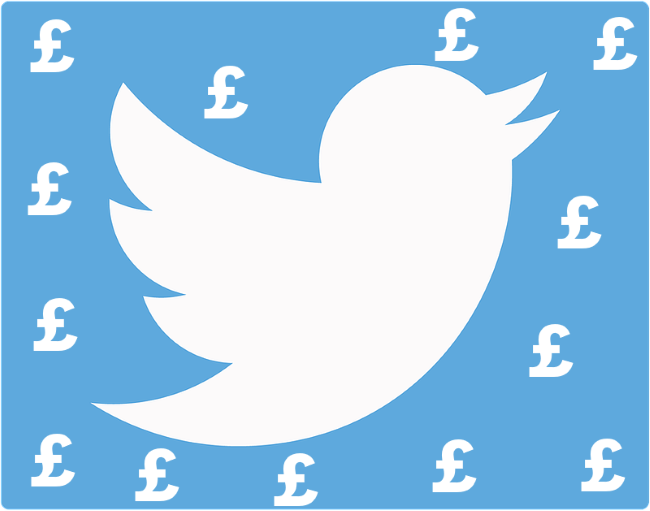What Does A Marketing Strategy Actually Mean For Your Business And How Does It Translate Into Revenue?
by Leanne Mordue on 10-Dec-2020 17:16:00

All businesses need to develop a good marketing and sales strategy to succeed and grow, even if they never refer to it as such. Every business has its own particular way of getting its message across and making sales, and without such a strategy in place, you lack direction. And – in the absence of direction - you will undoubtedly fall short of the sales goals you have set. According to a recent study, 80% of consumers say that they value their purchasing experience as highly as the services and products they purchase.
To give prospects an improved buyer experience, businesses need to approach marketing and sales in the right way. In the modern world, and especially post-covid, online marketing methods are the key to building brand awareness, securing new customers, and increasing sales revenues.
What Is An Effective Marketing Strategy?
To devise an effective marketing strategy, you need to know precisely who you intend to target. This way, you can produce all the content, ads and messaging to promote your brand with your audience in mind. Over time, as your business acquires more customer data, you will gain a better understanding of who your audience consists of. Therefore, be ready to learn on the job and adapt to change, because you might end up having to target a different demographic to the one you initially tried to reach.
Your Digital Sales Toolkit
Your business will require a website, a social media presence, and a blog where you can publish informative articles about your industry. These are the basic tools for the job. Podcasts, videos, images, presentations and infographics are important too. Audio and visual content makes a lasting impression. You have to educate your audience about the benefits of your products and services. Be prepared to invest lots of effort, time and patience into this objective, and to enlist sufficient in-house or third party resources to help you. Your brand needs to provide a unique benefit to stand out from its competitors. Highlight the main elements that differentiate your service/product from similar offers on the market.
Getting Your Campaign In Order
To ensure the success of your marketing campaign, you’ll need plenty of targeted content and a clear plan of how and when to use it. This can be done yourself, or in conjunction with a marketing agency working on your behalf, but things to think about include;
-A content publishing schedule
-A content creation calendar
-Branding guidelines for your business, including language and tone
- Content subjects or categories
-Keyword research
-Processes for following up leads
The first part of the campaign, or the marketing part if you like, involves lead generation through various channels – social media, email marketing, PPC etc.
But once you attract a reasonable number of subscribers on email and social media, the main job begins. You will have to engage with them successfully in order to convert them from leads to customers, and this is where a marketing strategy proves its worth – by providing a road map by which extra website visitors, clicks, social shares, and customer enquiries translate into more money in your bank account.
Inbound Sales – Get Customers Calling You!
The key to successful conversions is to avoid making a constant sales pitch for your business, and aim to provide content of value instead. This is what distinguishes digital marketing from traditional sales – you provide the right information, at the right time, to encourage your prospects to make all the moves. No cold calling involved!
Of course, you should recommend your services and products as the best option available, and always promote yourself indirectly by providing authoritative content, but you should focus primarily on needs of your audience. Highlight the issues they are facing, and explain how your business provides the ideal solution. A business development partner like JDR can help manage this process for you.
Your Brand – A Multi-Channel Sales Hub
To monitor the revenue generated by your different campaigns, draw up an ecosystem for your brand. Regard your brand as the hub of this ecosystem, with different channels that promote it externally. These might include email, the web, social platforms and mobile, etc.
Any of these channels can affect a customer’s buying decision, and act as gateways to a sale. At JDR, we can gather and evaluate data from these separate touch points to determine the profitability of each campaign, and create a bespoke approach that works for you. Contact us today and let us help you define your marketing strategy and boost your revenues.
Image: Unsplash
- Inbound Marketing (SEO, PPC, Social Media, Video) (831)
- Strategy (368)
- Sales & CRM (197)
- Marketing Automation & Email Marketing (190)
- Business Growth (168)
- Website Design (162)
- Hubspot (141)
- Lead Generation (117)
- Google Adwords (100)
- Content Marketing (94)
- Conversion (53)
- Case Studies (49)
- News (47)
- Ecommerce (39)
- Webinars (34)
- SEO (26)
- AI (20)
- Events (19)
- LinkedIn Advertising (17)
- Video (17)
- Video Selling (15)
- Software training (13)
- Niche business marketing (11)
- The Digital Prosperity Podcast (10)
- HubSpot Case Studies (7)
- Facebook Advertising (6)
- Web Design Case Studies (1)
- February 2026 (2)
- January 2026 (12)
- December 2025 (15)
- November 2025 (6)
- October 2025 (17)
- September 2025 (16)
- August 2025 (14)
- July 2025 (14)
- June 2025 (5)
- May 2025 (19)
- April 2025 (15)
- March 2025 (13)
- February 2025 (13)
- January 2025 (8)
- December 2024 (2)
- November 2024 (4)
- October 2024 (21)
- September 2024 (4)
- August 2024 (8)
- July 2024 (14)
- June 2024 (16)
- May 2024 (25)
- April 2024 (15)
- March 2024 (18)
- February 2024 (5)
- January 2024 (10)
- December 2023 (6)
- November 2023 (10)
- October 2023 (13)
- September 2023 (12)
- August 2023 (14)
- July 2023 (13)
- June 2023 (14)
- May 2023 (15)
- April 2023 (13)
- March 2023 (14)
- February 2023 (13)
- January 2023 (15)
- December 2022 (13)
- November 2022 (6)
- October 2022 (8)
- September 2022 (22)
- August 2022 (15)
- July 2022 (13)
- June 2022 (16)
- May 2022 (14)
- April 2022 (16)
- March 2022 (17)
- February 2022 (11)
- January 2022 (8)
- December 2021 (6)
- November 2021 (7)
- October 2021 (11)
- September 2021 (10)
- August 2021 (7)
- July 2021 (7)
- June 2021 (4)
- May 2021 (4)
- April 2021 (1)
- March 2021 (3)
- February 2021 (5)
- January 2021 (4)
- December 2020 (7)
- November 2020 (6)
- October 2020 (5)
- September 2020 (9)
- August 2020 (18)
- July 2020 (17)
- June 2020 (17)
- May 2020 (10)
- April 2020 (21)
- March 2020 (24)
- February 2020 (21)
- January 2020 (12)
- December 2019 (23)
- November 2019 (12)
- October 2019 (14)
- September 2019 (16)
- August 2019 (15)
- July 2019 (13)
- June 2019 (6)
- May 2019 (8)
- April 2019 (4)
- March 2019 (2)
- February 2019 (2)
- January 2019 (2)
- December 2018 (3)
- November 2018 (24)
- September 2018 (11)
- August 2018 (9)
- June 2018 (3)
- May 2018 (6)
- April 2018 (14)
- March 2018 (12)
- February 2018 (16)
- January 2018 (15)
- December 2017 (15)
- November 2017 (18)
- October 2017 (23)
- September 2017 (19)
- August 2017 (28)
- July 2017 (27)
- June 2017 (25)
- May 2017 (18)
- April 2017 (17)
- March 2017 (16)
- February 2017 (17)
- January 2017 (14)
- December 2016 (21)
- November 2016 (27)
- October 2016 (25)
- September 2016 (16)
- August 2016 (20)
- July 2016 (19)
- June 2016 (14)
- May 2016 (20)
- April 2016 (24)
- March 2016 (22)
- February 2016 (28)
- January 2016 (27)
- December 2015 (28)
- November 2015 (19)
- October 2015 (9)
- September 2015 (12)
- August 2015 (5)
- July 2015 (1)
- June 2015 (10)
- May 2015 (3)
- April 2015 (11)
- March 2015 (14)
- February 2015 (15)
- January 2015 (12)
- December 2014 (2)
- November 2014 (23)
- October 2014 (2)
- September 2014 (2)
- August 2014 (2)
- July 2014 (2)
- June 2014 (7)
- May 2014 (14)
- April 2014 (14)
- March 2014 (7)
- February 2014 (2)
- January 2014 (7)
- December 2013 (9)
- November 2013 (14)
- October 2013 (17)
- September 2013 (3)
- August 2013 (6)
- July 2013 (8)
- June 2013 (4)
- May 2013 (3)
- April 2013 (6)
- March 2013 (6)
- February 2013 (7)
- January 2013 (5)
- December 2012 (3)
- November 2012 (2)
- September 2012 (1)
Subscribe by email
You May Also Like
These Related Blogs

Why Social Media Marketing Is Important For IT Businesses
Marketing is undergoing a metamorphosis, with social media creating opportunities for a wide range of businesses. While most people will immediately s …

What Is Audience Profiling & Why Is Audience Profiling Important?
Many businesses rely on consumer data to reach new audiences, using a generic marketing approach in the hope of making a few meaningful connections. W …

How Twitter Makes Money For Small Businesses
Of the top 100 most followed Twitter users it’s no surprise that the list mainly consists of celebrities, news channels and politicians. So, what if y …




